In a world where software development moves at lightning speed, waiting for APIs to be ready can feel like watching paint dry. Enter API mocking services, the superheroes of the development realm. They swoop in to save the day, allowing developers to simulate API responses without the hassle of waiting for the real deal. Imagine building your application with all the functionality, minus the headache of real-time dependencies.
Table of Contents
ToggleOverview of API Mocking Services
API mocking services serve as essential tools in modern software development. These services allow developers to create simulated API responses, which facilitate application development without relying on fully functional APIs. By reducing the dependency on actual APIs, teams can enhance their productivity and speed up the development cycle.
Many organizations recognize the benefits of using these services. With API mocking, teams can test code and user interfaces before backend implementations are complete. Mocking provides flexibility when collaborating with other developers, as it offers a reliable way to work in parallel with backend services under development.
Several popular API mocking services are available, each with unique features. Tools like Postman, Mockoon, and WireMock stand out for their user-friendly interfaces and seamless integration into common development environments. These services allow easy customization of mocked endpoints and responses, providing developers with the ability to simulate various scenarios.
Using API mocking services can also enhance testing practices. Comprehensive test cases become possible as developers can simulate different API responses, helping ensure that applications behave as intended under diverse conditions. Secure environments often benefit from mocking services, as sensitive data remains protected while enabling the testing of functionalities.
API mocking services significantly impact the efficiency and effectiveness of the software development lifecycle. By offering a streamlined approach to API interaction, developers can focus on building applications without the obstacles typically posed by waiting for live APIs.
Benefits of Using API Mocking Services
API mocking services greatly enhance the software development process. They streamline workflows, reduce delays, and facilitate more efficient collaboration among teams.
Improved Development Efficiency
Developers experience a significant boost in productivity using API mocking services. These services simulate API responses, allowing teams to work in parallel without waiting for backend systems to be fully developed. By eliminating real-time dependencies, developers can test features sooner. A faster turnaround on iterations promotes timely project completion, resulting in better resource management. Integration with tools like Postman or WireMock offers user-friendly options, enabling quick setup and customization. Overall, these enhancements lead to a smoother development experience, helping teams meet deadlines with less frustration.
Enhanced Testing Capabilities
Testing becomes more comprehensive with API mocking services. Developers can generate various API responses tailored to specific scenarios, allowing tests to reflect real-world conditions. This flexibility ensures applications behave as expected, even with edge cases. By utilizing mocking tools, teams can identify issues early in the development cycle. Early detection of bugs minimizes troubleshooting time later, improving overall software quality. Moreover, seamless integration with existing testing frameworks promotes cohesive testing strategies, ensuring that every aspect of the application is thoroughly vetted before deployment.
Popular API Mocking Services
Several API mocking services streamline development, enhance productivity, and facilitate collaboration among teams. Each service has unique features and capabilities that cater to different project needs.
Postman Overview
Postman stands out for its user-friendly interface and robust features. Developers utilize Postman to easily create mock servers that simulate API responses. The platform supports a wide range of HTTP methods and response types, enabling developers to tailor simulations for specific scenarios. Additionally, teams can save and share collections of APIs, promoting collaboration and efficiency. Real-time testing and detailed documentation further enhance the developer experience, making it a top choice among API mocking tools.
Mockoon Overview
Mockoon is a desktop application designed for creating API mocks quickly and efficiently. With its intuitive user interface, developers find it easy to define routes and configure responses. Mockoon supports multiple environments, allowing users to switch between different setups with minimal effort. It also enables import and export functionalities, making team collaboration seamless. This tool’s lightweight nature and offline capabilities are particularly appealing for developers operating in various environments, ensuring flexibility during the development process.
WireMock Overview
WireMock is an advanced mocking service known for its powerful capabilities. This tool allows developers to define HTTP-based APIs and mock responses with precision. WireMock supports complex scenarios and features such as request matching, delays, and stateful behavior, enhancing testing versatility. Its extensive API facilitates integration with various testing frameworks, further supporting developers in building reliable applications. Using WireMock can significantly improve testing accuracy, ensuring applications function correctly under different conditions.
Key Features to Look for in API Mocking Services
API mocking services provide various features that enhance development experiences. First, consider user-friendly interfaces. A straightforward design allows developers to create and manage mock APIs without steep learning curves.
Next, customization options stand out. The ability to define custom responses, status codes, and headers enables teams to simulate real-world scenarios effectively. Look for services that support multiple environments. This feature simplifies testing across different stages of development.
Collaboration is crucial in a team setting. Services that offer shared API collections facilitate better communication among team members. Additionally, choose services that support diverse HTTP methods. Comprehensive method support ensures all aspects of API interactions are covered.
Reliability plays a key role. Services known for high uptime and stable performance minimize disruptions during development. Also, examine integration capabilities. Compatibility with popular development tools and CI/CD pipelines streamlines workflows.
Advanced features add significant value. Some services provide capabilities for recording and replaying API requests, which helps in creating accurate mocks. Monitoring tools also enhance the user experience by tracking performance metrics.
Security features should not be overlooked. Ensuring proper authentication and data handling safeguards sensitive information. While exploring these features, prioritize scalability. A service should adapt easily to increasing demands as projects grow.
Evaluating these features leads to selecting the most effective API mocking service. Prioritize the ones that align best with specific project needs and team dynamics.
Conclusion
API mocking services are essential tools for modern software development. They empower developers to create and test applications efficiently without the delays of waiting for live APIs. By simulating API responses, these services enhance productivity and facilitate collaboration among teams.
Choosing the right API mocking tool can significantly impact a project’s success. With options like Postman, Mockoon, and WireMock, developers can find features that best suit their needs.
Ultimately, leveraging these services not only streamlines workflows but also improves software quality through comprehensive testing and early bug detection. Investing in API mocking services is a strategic move that can lead to faster iterations and a more effective development process.








